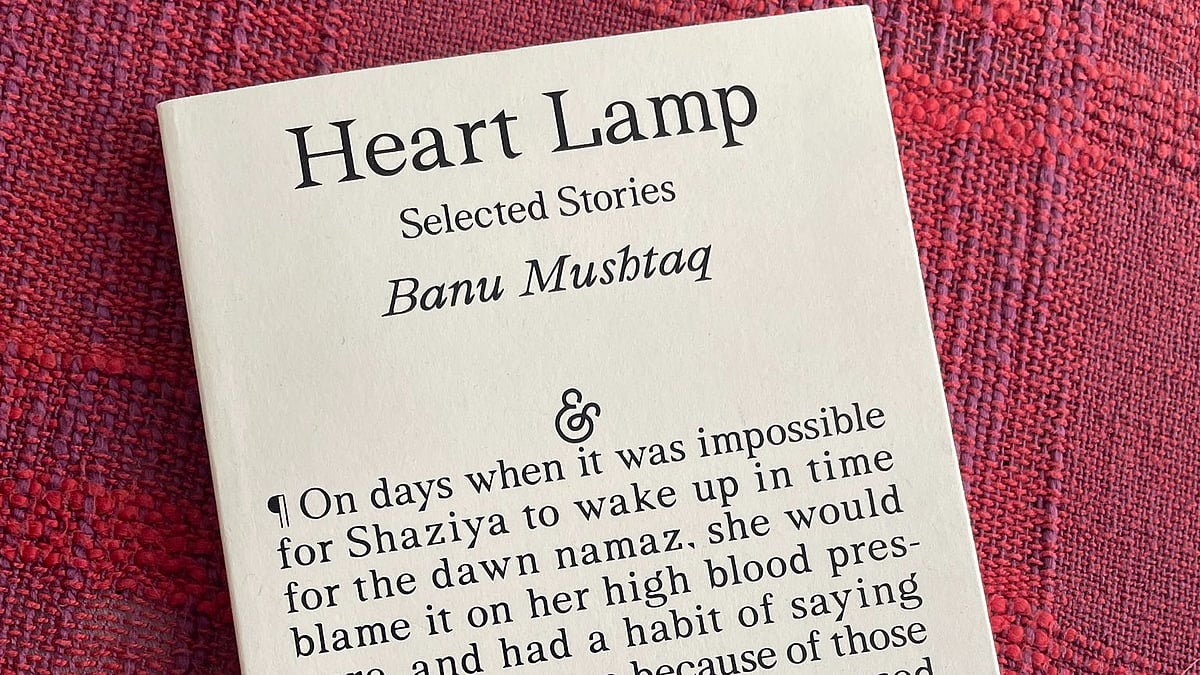In a landmark moment for Indian regional literature, Banu Mushtaq has made history by becoming the first author writing in Kannada to win the International Booker Prize, one of the most prestigious recognitions in global literature. Her collection of short stories, Heart Lamp, translated into English by Deepa Bhasthi, was celebrated at an award ceremony held on May 20, 2025, at the Tate Modern, London.
Heart Lamp
Heart Lamp, originally titled Hridaya Deepa in Kannada, brings together twelve poignant stories that span over three decades of Mushtaq’s writing, from 1990 to 2023. The book delves into themes of family, societal roles, gender expectations, and the complexities of everyday life in Karnataka. Its recognition by the International Booker jury is notable not just for the regional language milestone but also because this is the first time a short story collection has ever won the award.
Published in April 2025 by the UK-based independent publisher And Other Stories, the book stood out among 154 submissions.
A shared honor and literary milestone
The £50,000 prize (approximately ₹57.5 lakh) is equally split between Mushtaq and her translator, Deepa Bhasthi. This win also marks Bhasthi’s historic achievement as the first Indian translator to receive the International Booker Prize.
Bhasthi, who carefully selected and translated the stories, described her approach as “translating with an accent”-a method that preserves the cultural essence and local nuances while making the text accessible to international readers. Her translation work also earned recognition through the English PEN Translates Award.

Banu Mushtaq and Deepa Bhasthi | Booker Prize Foundation
Mushtaq’s remarkable life
Born in the 1940s in Shivamogga, a small town in Karnataka, Banu Mushtaq was raised in a conservative Muslim household, where girls were usually limited to religious studies. Her father, however, envisioned a different path for her. He enrolled her in a Kannada-medium convent school when she was just eight, despite objections from school authorities.
Her rapid grasp of the language paved the way for a literary career that would challenge patriarchal norms and amplify female voices through fiction.
Mushtaq’s personal life was often as turbulent as the tales she told. She married at 26 and grappled with postpartum depression, domestic restrictions, and the pressure to conform. In a harrowing incident she shared in past interviews, she once attempted to take her own life but was stopped by her husband in a deeply emotional moment. These life-altering experiences gave her stories raw authenticity and emotional depth.
“I had always wanted to write but had nothing to write about,” she once told Vogue India. “I was told to cover up and dedicate myself to domestic life. That suppression eventually gave me the stories I needed.”
At the ceremony, Mushtaq reflected on literature’s unifying role, saying:
“No story is ever small. In the tapestry of human experience, every thread holds the weight of the whole.”
She emphasised that literature allows people to “live inside each other’s minds”-a powerful counter to the divisions and prejudices of the world.
About the translator: Deepa Bhasthi
Based in Kodagu, Karnataka, Deepa Bhasthi is a writer, essayist, and translator. Her previous work includes translations of Kota Shivarama Karanth and Kodagina Gouramma. With Heart Lamp, she curated and translated a powerful selection from Mushtaq’s oeuvre, focusing on emotional depth, cultural grounding, and linguistic integrity.
Her win not only raises the profile of Kannada literature but also underscores the crucial role of translators in building bridges across languages and cultures. Bhasthi echoed these sentiments in her acceptance speech, celebrating Kannada’s moment on the world stage:
“What a beautiful win this is for my beautiful language.”
